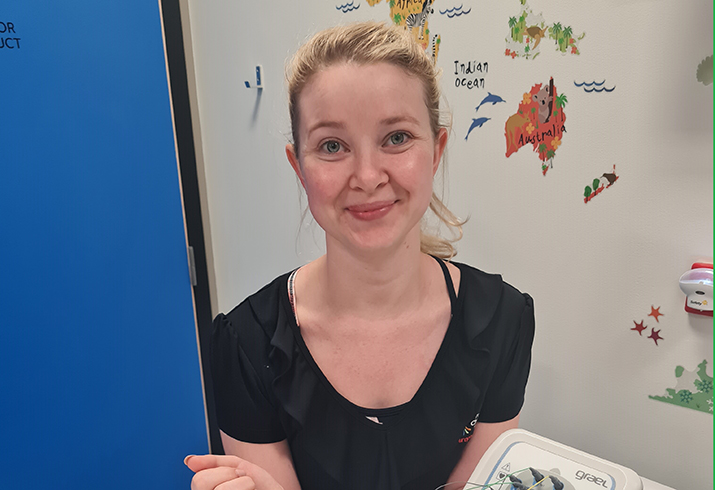Allied Health Week: Meet the Neurophysiology team at PCH

It's Allied Health Week at CAHS (2 November - 8 November) and we're meeting some of our allied health professionals at CAHS! Meet the Neurophysiology team at PCH.
What do you do?
Neurophysiology which is a branch of Neurology on Level 1, Clinic G at PCH.
In neurophysiology, we perform diagnostic tests on children, mainly those with epilepsy. Our range of tests include:
- Electroencephalograms (EEGs)
- Long term EEGs for kids that stay on the ward for up to two weeks and being continually monitored
- High density EEG, Somatosensory Evoked Potentials (SSEPs)
- Visual Evoked Potentials (VEPs)
- Brainstem Auditory Evoked Responses (BAERs)
- Nerve Conduction Studies (NCS)
- Intraoperative Monitoring (IOM) where we do an assortment of the above tests while children undergo brain and spinal surgery
We also provide a satellite service to KEMH providing Neonatal EEGs for their babies in the intensive care units.
How do you get into this job?
You can complete a Bachelor of Science, majoring in Neuroscience. Typically people then train to be a technologist in a hospital.
What's a typical day for you?
We perform many EEGs in our department every day. They are the primary test that we provide. During an EEG, we apply up to 64 electrodes to a child’s head in specific places and record brainwaves while the children are awake, drowsy and asleep, monitoring real time brain activity. We have between 10-25 of these scheduled each day. But our day changes every day, and we never know what to expect and what test we will be assigned to.
What's the best thing about your job?
Our job is very rewarding. To see the children evolve in their epilepsy journey is incredible. They attend their initial testing, find out they have epilepsy, and either do well on medication or experience a rollercoaster of medications to find the seizures just don’t stop. For that small percentage of kids, we do further testing.
The further testing involves taking them to our epilepsy monitoring unit up on the ward to perform long term EEGs and capture as many seizures as possible to see if they are all coming from the same focus/area. In those kids, we can sometimes do surgery to remove that focus. We get to test them while they are in surgery! To see those kids come out the other side and be seizure free is the most rewarding thing we can witness at work. I’m proud to be a part of the service we provide.
Tell us something we might not know about allied health professionals?
Neurophysiology technologists are a rare breed. There are not many of us in Australia and those working at PCH are the only paediatric technologists in WA. There are only three of us that are able to perform the more complex procedures like the surgical monitoring and neonatal EEGs on premature infants at KEMH.
What's been the best part of 2020?
For the Neurophysiology technologists, 2020 has been no different. We have learnt that our role doesn’t really change even when there is a pandemic! The best part is that we come together as a team every day regardless of what’s happening in the world.
Image | Nicki Miglori is a Neurophysiology Technologist at PCH

